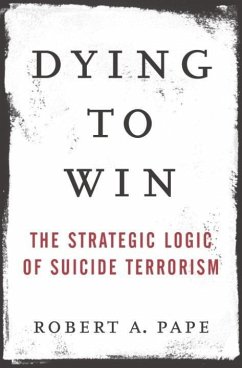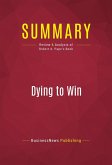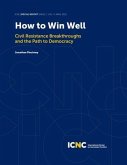Suicide terrorism is rising around the world, but there is great confusion as to why. In this paradigm-shifting analysis, University of Chicago political scientist Robert Pape has collected groundbreaking evidence to explain the strategic, social, and individual factors responsible for this growing threat. One of the world's foremost authorities on the subject, Professor Pape has created the first comprehensive database of every suicide terrorist attack in the world from 1980 until today. With striking clarity and precision, Professor Pape uses this unprecedented research to debunk widely held misconceptions about the nature of suicide terrorism and provide a new lens that makes sense of the threat we face. FACT: Suicide terrorism is not primarily a product of Islamic fundamentalism. FACT: The world's leading practitioners of suicide terrorism are the Tamil Tigers in Sri Lanka-a secular, Marxist-Leninist group drawn from Hindu families. FACT: Ninety-five percent of suicide terrorist attacks occur as part of coherent campaigns organized by large militant organizations with significant public support. FACT: Every suicide terrorist campaign has had a clear goal that is secular and political: to compel a modern democracy to withdraw military forces from the territory that the terrorists view as their homeland. FACT: Al-Qaeda fits the above pattern. Although Saudi Arabia is not under American military occupation per se, one major objective of al-Qaeda is the expulsion of U.S. troops from the Persian Gulf region, and as a result there have been repeated attacks by terrorists loyal to Osama bin Laden against American troops in Saudi Arabia and the region as a whole. FACT: Despite their rhetoric, democracies-including the United States-have routinely made concessions to suicide terrorists. Suicide terrorism is on the rise because terrorists have learned that it's effective. In this wide-ranging analysis, Professor Pape offers the essential tools to forecast when some groups are likely to resort to suicide terrorism and when they are not. He also provides the first comprehensive demographic profile of modern suicide terrorist attackers. With data from more than 460 such attackers-including the names of 333-we now know that these individuals are not mainly poor, desperate criminals or uneducated religious fanatics but are often well-educated, middle-class political activists. More than simply advancing new theory and facts, these pages also answer key questions about the war on terror: • Are we safer now than we were before September 11? • Was the invasion of Iraq a good counterterrorist move? • Is al-Qaeda stronger now than it was before September 11? Professor Pape answers these questions with analysis grounded in fact, not politics, and recommends concrete ways for today's states to fight and prevent terrorist attacks. Military options may disrupt terrorist operations in the short term, but a lasting solution to suicide terrorism will require a comprehensive, long-term approach-one that abandons visions of empire and relies on a combined strategy of vigorous homeland security, nation building in troubled states, and greater energy independence. For both policy makers and the general public, Dying to Win transcends speculation with systematic scholarship, making it one of the most important political studies of recent time.
Dieser Download kann aus rechtlichen Gründen nur mit Rechnungsadresse in A, B, BG, CZ, D, DK, EW, E, FIN, F, GR, HR, H, I, LT, L, LR, NL, PL, P, R, S, SLO, SK ausgeliefert werden.









